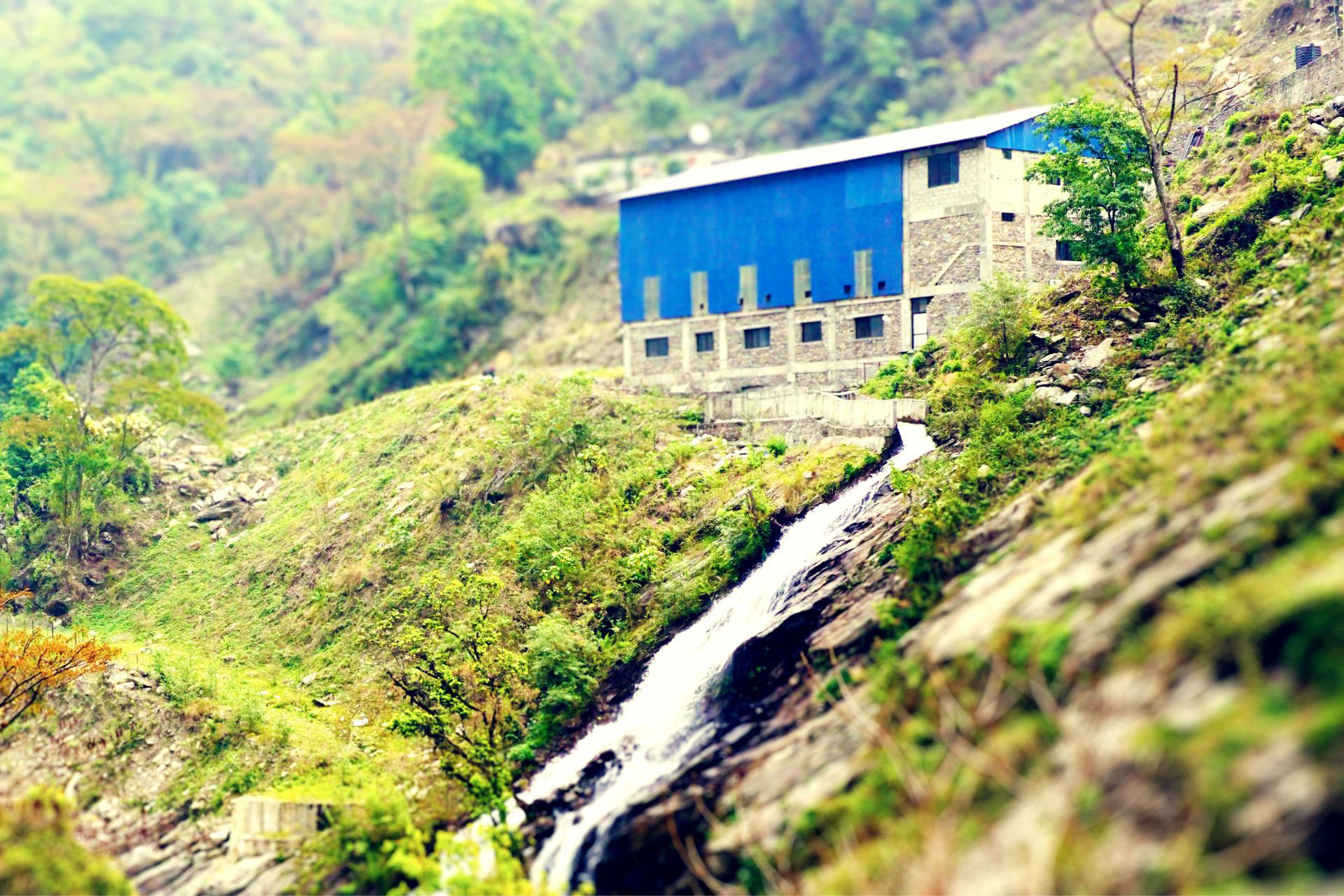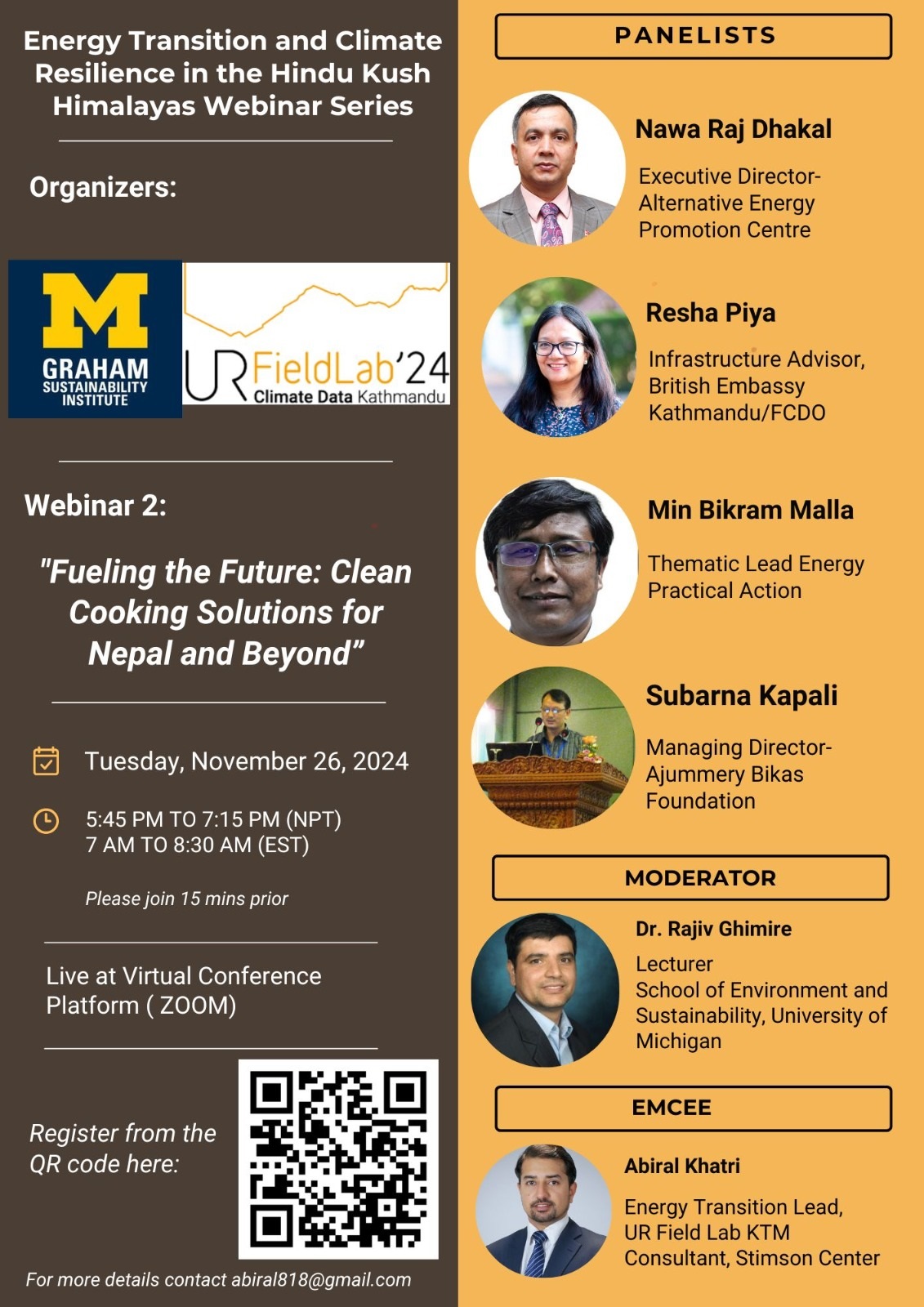Webinar Recording


View/download flyer (JPG)
The second webinar in this series, "Fueling the Future: Clean Cooking Solutions for Nepal and Beyond," explored clean cooking as an essential component of Nepal’s energy transition, aiming to reduce reliance on traditional cooking practices that impact health, the environment, and economic well-being. Clean cooking solutions play a critical role in reducing household air pollution, lowering carbon emissions, and empowering rural communities by offering safer, more sustainable cooking methods. This session addressed Nepal’s journey toward cleaner cooking options, drawing comparisons with other countries’ experiences and highlighting lessons learned along the way.
Panelists examined challenges to scaling these solutions, from funding and policy limitations to cultural barriers, while discussing strategies to overcome these obstacles through community engagement, innovation, and supportive policy frameworks. The session also looked at the critical role of government and international organizations in providing the technical, financial, and infrastructural support necessary to promote clean cooking on a large scale.
Panelists
- Nawa Raj Dhakal, Executive Director - Alternative Energy Promotion Centre
- Resha Piya, Infrastucture Advisor - British Embassy Kathmandu/FCDO
- Min Bikram Malla, Thematic Lead - Practical Action
- Subarna Kapali, Managing Director - Ajummery Bikas Foundation
Moderator
- Dr. Rajiv Ghimire, Lecturer- School of Environment and Sustainability, University of Michigan
Emcee
- Abiral Khatri, Energy Transition Lead, UR Field Lab and Consultant, Stimson Center
Topics covered included:
- Importance of Clean Cooking
- Nepal’s Journey and Global Comparisons
- Challenges and Opportunities in Scaling Clean Cooking Solutions
- Community Engagement and Awareness
- Role of Government Policy, International Support, and Private Sector Involvement
- Research, Innovation, and Technology Development
This session set the stage for ongoing discussions on energy transition by underscoring the critical importance of inclusive and sustainable solutions for Nepal’s energy future and exploring how Nepal’s experiences in clean cooking may offer valuable lessons for other regions.
About the Series
The Energy Transition and Climate Resilience Webinar Series is a collaboration between the Energy Transition Research Team from the University of Michigan and the Energy Transition and Climate Finance working group of UR Field Lab. This webinar series invites 3 to 4 guests to share their insights and experiences working on energy transition. The UR Field Lab conducted in Kathmandu during May-June 2024 to build momentum on energy transition by hosting 14 sessions (schedule) focused on various aspects of energy transition, bringing together experts including government officials, private sector, and community leaders to discuss clean energy in the Hindu Kush Himalayan region. The University of Michigan faculty members study energy transition and global development. This initiative aims to continue the conversation on sustainable energy transition through a series of focused webinars. The initial sessions of this series focus on Nepal’s energy transition to deepen the conversation on sustainable energy solutions and are contextually relevant to Nepal’s unique energy challenges and opportunities. As part of the inception, we are organizing two sessions focusing on the supply side (energy connectivity and transmission lines) and the demand side (clean cooking solutions), which are highly relevant in the current context. Following these sessions, we will have the opportunity to reflect and plan future discussions accordingly.
The first webinar was held on October 28, 2024 on the topic: Powering Nepal: Strengthening Energy Connectivity and Transmission Lines Event Webpage